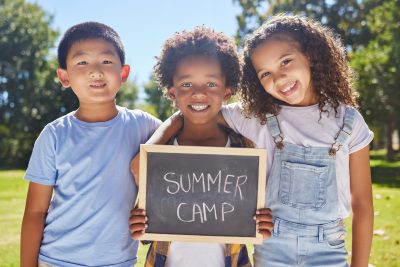A Brief Overview
- There are many inexpensive ways to entertain children over the summer
- Check with local parks and recreation for activities, including those for children and youth with disabilities
- Washington State Parks are wonderful for exploring as a family
- Consult with family organizations, schools, and educators for ideas and information on programs
Full Article
Summer camp is an excellent way for children to spend the long summer days. However, camps are often filled quickly, and many are out of the financial reach of families. Here are some alternatives to those summer camps to entertain children and give caregivers some much needed respite.
Local parks and recreation departments in larger communities boost their options for children over the summer. These can include sports, preschool classes, and outdoor activities. Some of the parks and rec departments, especially in larger communities, have adaptive or accessible classes, for those with disabilities and/or sensory issues. Boys and Girls Clubs have activities, classes, and day camp for a small fee. The YMCA also can offer day camp options, along with their usual sports and recreation options. For families in more rural areas, 4H has many opportunities for children and youth to engage in hands-on learning, skill building, and community interaction.
Washington State Parks provide for a wide range of outdoor activities this summer and even have special events that can be viewed on their calendar. For children four and up, their Junior Ranger Program has activities to print out and ideas for indoor and outdoor fun. For those with physical limitations, an interactive ADA map of park facilities shows the wheelchair accessible options throughout the State Park system.
Libraries often have surprisingly varied options, including reading programs, arts and crafts, educational classes, and movie nights. Many libraries now have take-home kits for creative activities to do with the whole family. Summer reading lists are available both on library websites and in-person.
Movie theaters sometimes offer sensory-friendly film viewing at certain scheduled times, check with the theater. Good for those hot afternoons!
Parent groups and family organizations are often up to date on the latest summer activity offerings around the community. The Arc of Washington and Parent to Parent are both focused on families with children with disabilities or special health care needs, are aware of many opportunities, and may even offer some events for families and kids.
Some school districts have enrichment activities over the summer beyond the extended school year (a.k.a. summer school) options. Local school district websites will have full listings for anything they may offer. Often schools and school districts also have recommendations for summer activities and information on summer events. Teachers are a useful resource for summer ideas and information, as they have heard a lot about what their students are doing this summer, so a quick chat with them may be in order.
Several websites focus on community events and classes that children and youth can be involved in over the summer. The most prominent is Macaroni kid, but others include Parent Map, and Family Day Out. The local Chamber of Commerce and local newspapers also will post some event highlights and may list on their community calendars. Summer is also the time for County Fairs, most of which take place in August.
Lifespan Respite has a list of registered providers that is accessible to everyone, where it is possible to find recreation and respite options by county, age served, disabilities served, and respite type. The options listed under Recreation on the “Respite Type” menu has an array of interesting options that may have flown under a family’s radar, such as equine therapy, music classes, and sensory-friendly playgrounds.

